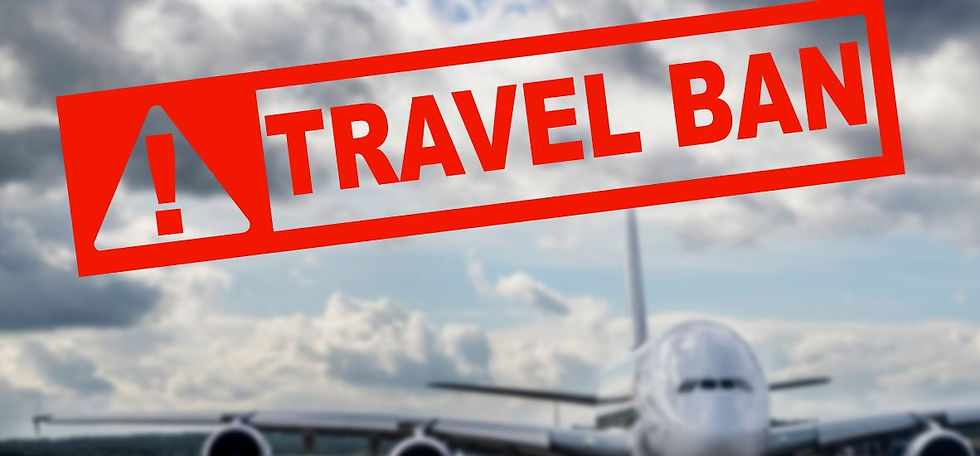Using P-3 Visa to Perform Individually or as a Group in the U.S.
- Patricia Elizee

- Apr 30, 2024
- 4 min read
Updated: Jun 27, 2024

The United States is among the top destinations for many entertainers and artists across the globe. Whether you’re already a seasoned professional, a global personality, or an amateur, the US creates a welcoming environment for global audiences to appreciate your talents and skills. This also explains why many artists or musicians visit the country as representatives and ambassadors of their own nations.
What is P-3 Visa?
The P-3 visa is a nonimmigrant visa which allows foreign nationals to enter into the United States to perform, teach or coach as artists or entertainers. This is a nonimmigrant visa that both entertainers and their support personnel can apply for. You can apply individually or as a group. Applicants for P-3 visa must have foreign residences that they do not intend to abandon. This means that they must intend to come to the U.S. as temporary nonimmigrants and to depart at the end of their approved stays under P-3 status. With this visa, you can enter the US, perform and receive payment, or win prize money. You can engage in part-time studies during your stay and bring your dependents along with you such as your spouse or unmarried children under the age of 21. P-3 Visa Status only permits you to work for the employer who sponsored your petition, change of employer requires that you apply for a new visa.
Eligibility Criteria
To be eligible for the P3 visa, you must be coming to the U.S. to perform, teach, or coach in a specific field such as a unique or traditional ethnic, cultural, musical, folk, artistic, or theatrical performance or presentation. In addition, you must be coming to the United States to participate in a cultural events which will further the understanding or development of your art form. You must have a U.S. sponsor who will be responsible for your stay in the United States. Finally, you must have the necessary skills and experience to perform or present the program. The program may be of a commercial or noncommercial nature.
Process for obtaining a P3 visa
Step One: File Form I-129
The first step to apply for the P3 visa requires the applicant’s agent, potential employer, or sponsor file Form I-129, Petition for Nonimmigrant Worker and written consultation from an applicable labor organization appropriate for the P3 visa. Both of these items must be filed with the United States Citizen and Immigration Services (USCIS).
Step Two: USCIS Process Form I-129
Once the USCIS receives Form I-129, the employer, agent, or sponsor will receive the following in return:
A receipt notice confirming the petition was received;
A notice to appear for an interview, if required;
A biometric services notice, if applicable; and
A notice of decision, Form I-797, Notice of Action.
Step Three: Submit Form DS-160
The P3 visa applicant(s) must complete Online Nonimmigrant Visa Application, Form DS-160 and pay the fee, the employee must download and print the confirmation page showing Form DS-160 was completed and the filing fee paid. The confirmation page will need to be brought to the visa interview at a U.S. Consulate or Embassy.
Step Four: Interview Requirement
After submitting the form DS-160, the P-3 visa applicant(s) will receive Form I-797 and may be required to attend an interview at a U.S. embassy or consulate where an official will evaluate an applicant’s application and ask questions pertaining to the applicant’s qualifications for the P3 visa.
The embassy may also request additional documents depending on your program. Other necessary documents include a written contract, consultation document, and statement describing the support personnel’s skills and experience with the main artist, entertainer, or group.
P3 Visa Period of Stay and Extension
A beneficiary may be admitted to the United States for the validity period of the petition, plus a period of up to 10 days before the validity period begins and 10 days after the validity period ends. The beneficiary may work only during the validity period of the petition. If the performance takes more than a year, you’ll have to apply for an extension after 12 months. The United States Citizenship and Immigration Services (USCIS) issues extensions in one-year increments. Your sponsor has to file another Form I-129 to apply for an extension of stay.
Spouses and children under the age of 21 who wish to accompany or join the beneficiary in the U.S. for the duration of their stay can apply for a P-4 visa.
Should I Contact a Lawyer for Issues with My P-3 Visa?
Immigration laws, especially those involving visas, may be difficult to understand. If you are considering applying for a temporary employment visa, such as a P-3 visa, an attorney can advise you on the application process and assist you every step of the way.
Elizee Law Firm provide individuals, families, and employers with the legal representation they need to navigate the process of a complex immigration. For more information on how we can assist you, please visit our website at www.elizeelawfirm.com or email us at intro@elizeelawfirm.com.
Patricia Elizee is the managing partner of the Elizee Law Firm, an immigration law firm located at 1110 Brickell Avenue, Suite 315, Miami, Florida 33131. Phone 305-371-8846


















Comments